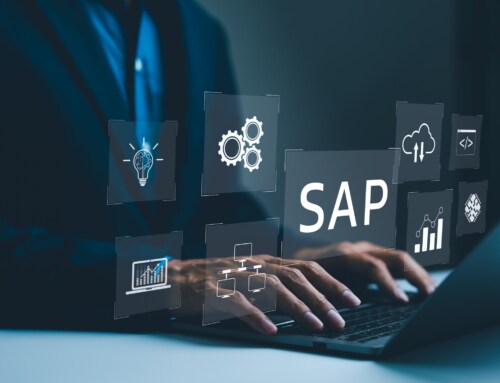Why and how you should optimise your eCommerce platforms
I’ve been working with warehouse and distribution businesses for the better part of three decades, and I’ve seen businesses and the business landscape evolve over time. But one thing that has been slow to change is how B2B businesses utilise technology.
While B2C customers are getting the cutting edge of online shopping technology and connectivity – such as “buy now, pay later” services – it seems that many B2B businesses are struggling to catch up. And this is costing them.
As we hurtle towards a predominantly online world, how can you start improving your online and ecommerce services with systems you already have in place – namely, Jiwa 7?
Digital is becoming king for B2B businesses and consumers
It’s common for B2B relationships to be formed through mutual connections and for transactions to be conducted over phone or email. But this is changing as those who grew up never knowing a world without the internet and mobile devices start dominating the ranks of business.
It’s clear that B2B businesses without functioning websites and integrated ecommerce capabilities are losing out on:
- New customers – in 2023, customers don’t have the time, nor the inclination, to call a vendor up to discuss their needs or ask about products (plus, 44% of millennials prefer no sales rep interaction in B2B settings). Most of them will be buying from the businesses that provide a great online experience, not the ones that require them to phone up.
- Efficiency – as businesses grow and scale, manual data entry becomes a burden and impacts future growth. It can take countless hours each week to update multiple backends to ensure websites and inventories are all up to date and synced.
- Cost-savings – customer service doesn’t come cheap. Whether it’s paying the salaries of multiple sales reps or business owners losing precious hours dealing with customer enquiries, solutions like robust FAQ pages and CRMs make it far more cost-effective to answer enquiries and help customers move through their sales journey.
In addition to these points, our world is becoming more reliant on technology. It’s no longer an option for businesses to have a completely offline system. In Australia, for example, payroll now must be done online.
This means that many businesses are now investing in software that brings some, if not all, of their processes online. This means that more and more businesses are using Jiwa – but did you know that Jiwa can connect to more than just business processes?
How to improve B2B ecommerce functionality with Jiwa
For Jiwa users that sell products or services, there are multiple tools that enable online and optimise selling with your ERP:
Online shopping carts
These are tools like WooCommerce, Shopify, Square, and Magento that provide you with an online shopfront, selling functionality, and backend tools like inventory and fulfillment management. The benefit for many of these is that they’re widely used, offer world-class support, and can integrate with your ERP.
Web Ninja or Straight Sell- Out of the box API integrators
While it is possible to write your own integration using Jiwa’s API, you can also connect your ecommerce tools using a pre-configured solution such as Web Ninja or Straight Sell. Without integrations, the previous challenge of manual data entry returns.
Both Web Ninja and Straight Sell provide an out of the box connector that fits in with their various web site and web cart offerings. This means you can get all the benefits of connectivity without the on-going cost of maintaining them internally.
Sell more and sell better with optimised ecommerce processes
Based on my experience with warehousing and distribution businesses, I estimate that only a quarter have some sort of ecommerce functionality. This means that those that do optimise will stand out amongst competitors.
But this isn’t the only benefit that optimising your ecommerce capabilities with Jiwa brings:
- Closer customer relationships – it’s vital to know who’s searching for your services or shopping with you. A robust, up-to-date website allows you to track your visitors, analyse their behaviours, and form relationships with them. Jiwa also has an easy to use CRM so you can continue building relationships and personalising client interactions – all without added effort.
- Increased efficiency – it goes without saying that having one central repository of information and data makes running a business more efficient and reduces errors. But it also makes it easier for you to work with suppliers – purchase orders and other real-time information can be shared with them so they can improve the speed of your order.
While it can be daunting to take the first step to optimising your processes and ERP, it’s one that needs to be taken sooner rather than later. My team can provide you with the right advice and tools to make the process easier and quicker.
If you’d like to discuss your needs, you can contact us here for a chat. And if you’d like ongoing support and access to further resources, you can also join our Support Club.







Leave A Comment